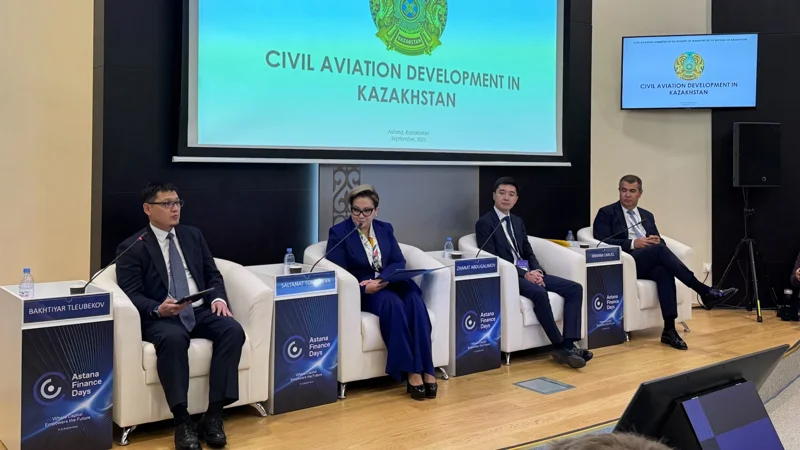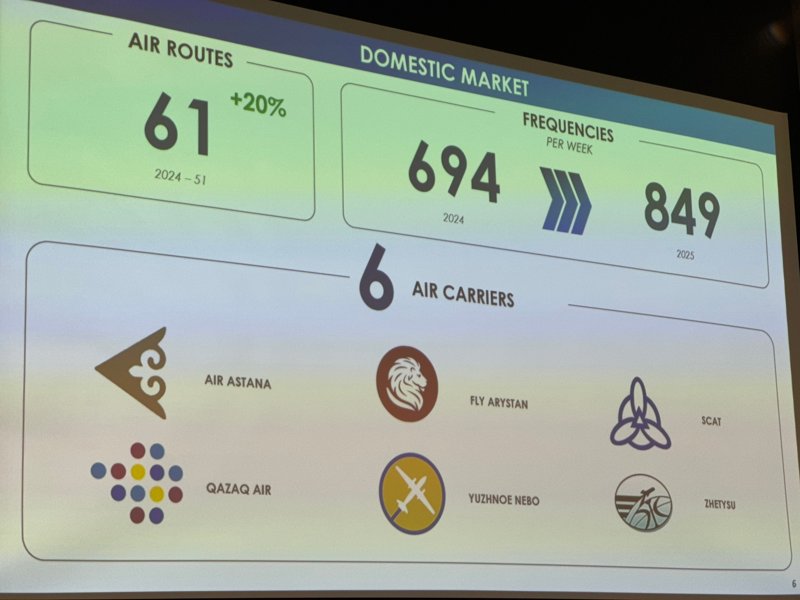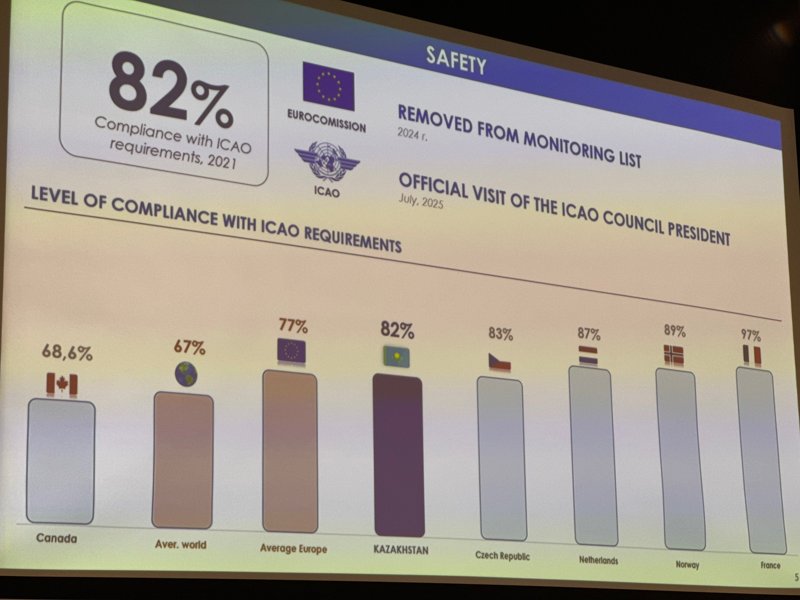Kazakhstan’s aviation industry takes off with record growth
Kazakhstan’s civil aviation sector is demonstrating dynamic growth and strengthening its position as a regional transit hub, speakers emphasized during a panel session at Astana Finance Days, Kazinform News Agency reports.

Chairwoman of the Civil Aviation Committee Saltanat Tompiyeva noted that the country’s airports served nearly 30 million passengers in 2024. Passenger turnover grew by 14%, cargo volumes rose by 18%, while transit flows increased by 11%.

“Kazakhstan has achieved 82% compliance with ICAO standards, surpassing both global and European averages. Our system was recognized for transparency, and the country was removed from European Commission monitoring. This confirms that Kazakhstan’s aviation industry is on the right track,” Tompiyeva stressed.
She highlighted that Kazakhstan now operates 61 domestic routes with 849 flights per week, serviced by six carriers. To boost international connectivity, new foreign investors have been attracted. In 2025, 26 new routes will be launched, including services by low-cost carriers such as Korea’s Easter Jet and Thailand’s Thai Air Asia X. Long-haul destinations are also planned, including Singapore, Tokyo, Rome, Vienna, and New York in 2026.

Managing Director of the Aviation Administration of Kazakhstan, Zhanat Abdugalimov, reported that Kazakhstan currently counts 47 registered operators, of which 18 hold Air Operator Certificates. Seven carriers are authorized under EASA’s Third Country Operator (TCO) program, enabling flights to the EU.
“The national aircraft registry includes more than 900 aircraft, while 24 airports have been certified by our authority. Last year alone, we conducted around 1,000 inspections and issued over 1,000 licenses, certificates and permissions. At the same time, we applied enforcement measures, including suspending operators and restricting airport operations where standards were not met,” Abdugalimov said.
According to him, Kazakhstan also achieved favorable results in SAFA inspections abroad, showing safety performance levels better than the EU average. This plays a key role in maintaining EU access and supporting airlines in obtaining and maintaining EASA TCO authorization.

The speakers underlined that systematic reforms, international cooperation, and strong safety oversight are helping Kazakhstan transform into a modern aviation hub connecting East and West.
Earlier, it was reported that Uzbekistan called for closer cooperation with Kazakhstan in aviation and logistics.
